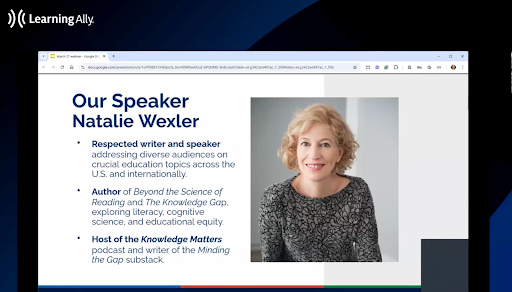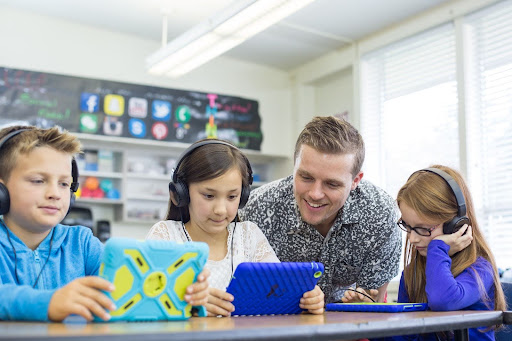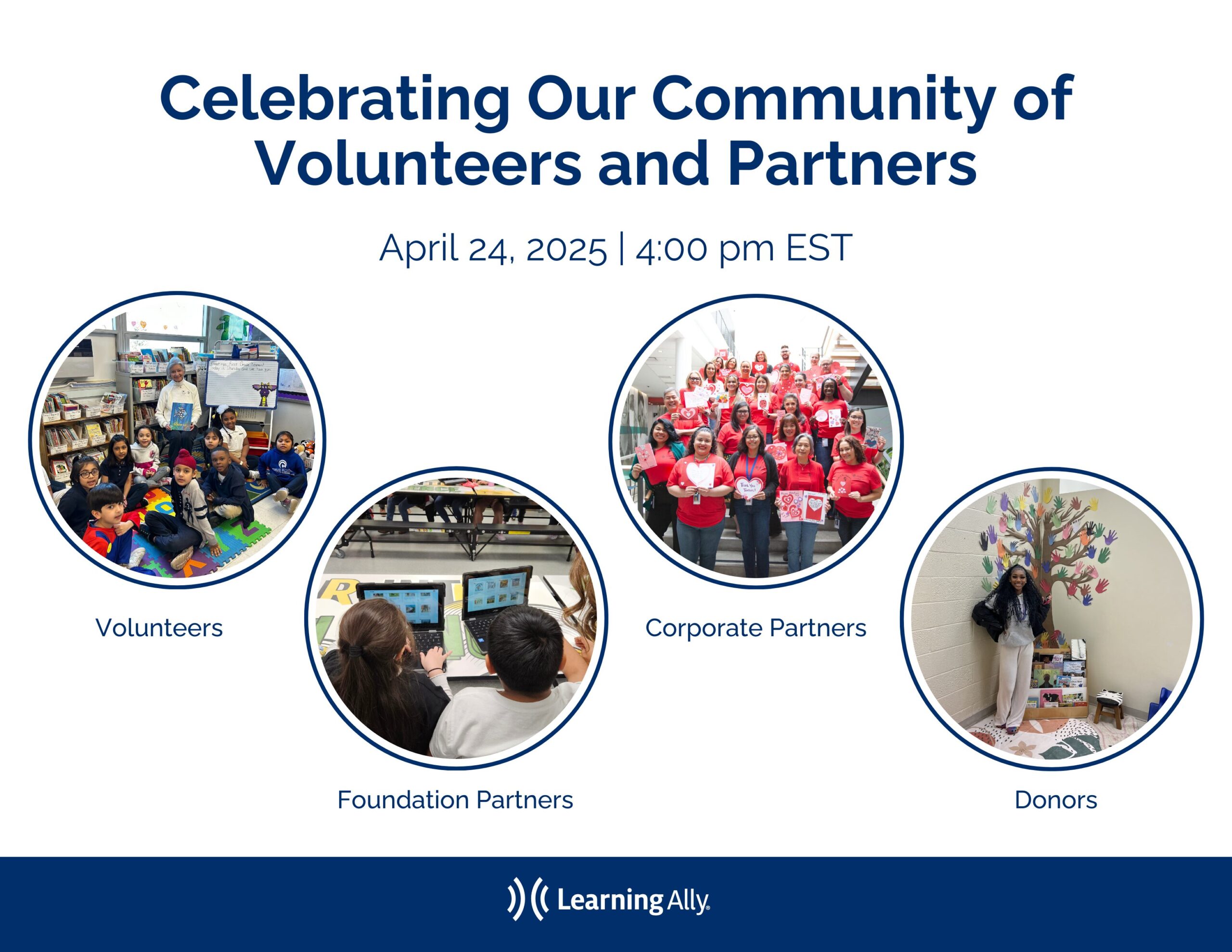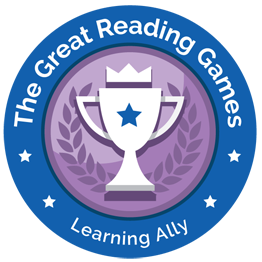Unlocking Literacy: Strategies to Help Struggling Readers Access Complex Texts
Categories: resourceLearning Ally Blog: Access and Achievement
Now more than ever, people with learning and visual disabilities are flourishing in the classroom, launching productive careers and becoming assets in their communities. This blog spotlights remarkable individuals who demonstrate that having a visual or print disability is no barrier to educational success.
When the 2024 National Assessment of Education Progress—the Nation’s Report Card—was released in January, it set off loud alarms about U.S. student literacy skill development. Once again, reading scores declined, adding to a decade of decreases. In fact, average reading scores declined in 2024 for students in 4th grade and 8th grade by 2 points[...]
Categories: resourceLearning Ally recently had the privilege of honoring two remarkable New Jersey state legislators whose tireless work continues to transform educational opportunities for students across the Garden State.
Categories: resourceApril is Volunteer Appreciation Month, a time to recognize the incredible individuals and organizations that make Learning Ally’s mission possible. We believe that meaningful change happens when dedicated volunteers, donors, and philanthropic partners come together. With the support of our community, we help provide struggling students and educators with the accessible literacy resources they need[...]
Categories: resourceIn a remarkable demonstration of literacy and determination, Learning Ally has just wrapped up its eighth annual Great Reading Games, showcasing an unprecedented level of student engagement and reading achievement. This innovative program continues to break barriers for students with learning differences, proving that with the right support, every student can become a confident reader.
Categories: resource



